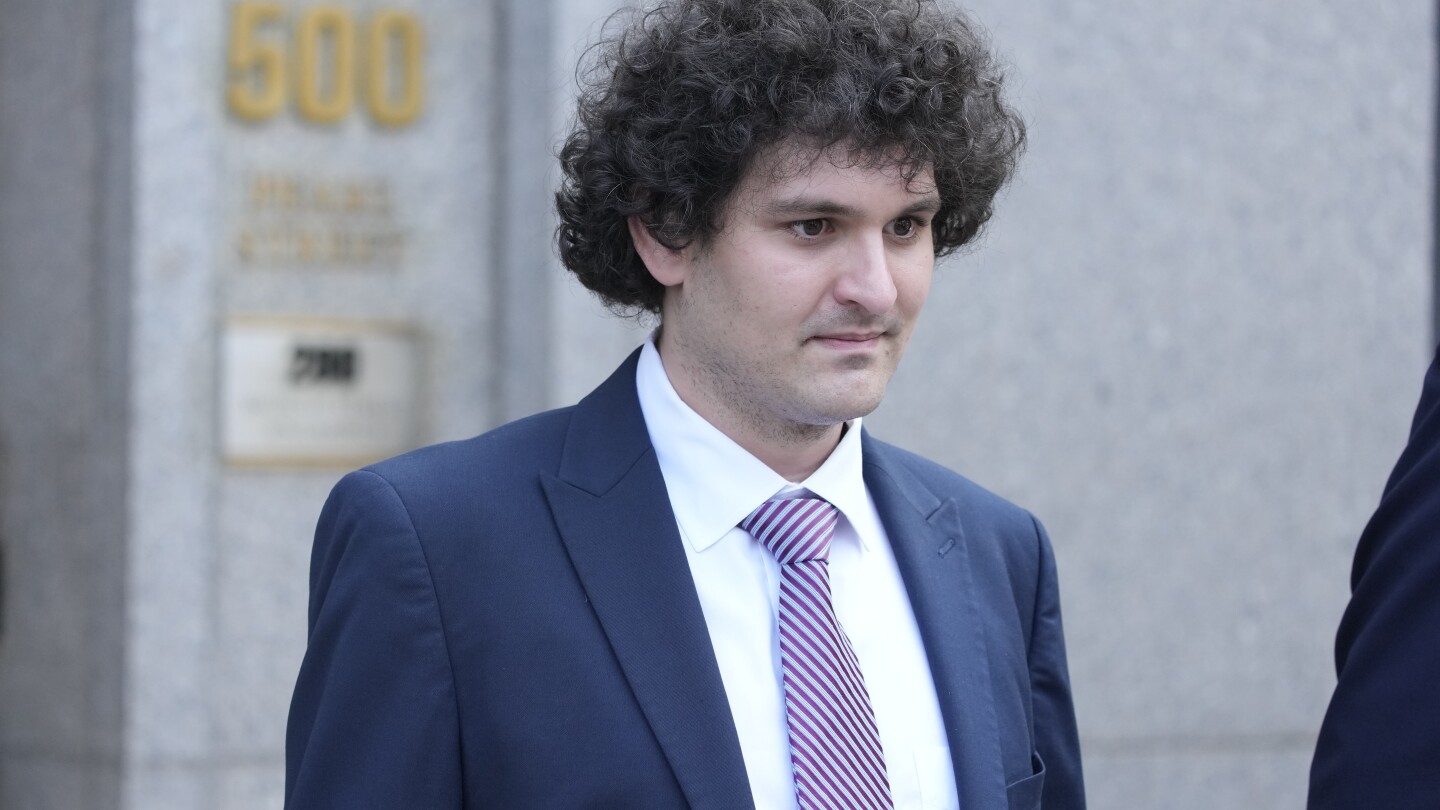Cyber Security
Everything You Need to Know About Internet Security – Legal Scoops
Published
3 years agoon

Most lawyers haven’t studied computer science extensively and may look at internet security as being nothing more than purchasing security software for their laptop or calling up their credit card company when weird online purchases pop up on their bills that they never made.
For yourself and certainly your clients, cyber security can come off as an extremely complex concept that we would rather leave to the professionals.
Instead of getting stuck in overwhelming assumptions, let’s simplify the basics of internet security and jump right in and make sense out of its basic premise so that it stops feeling so intellectually intimidating.
Cyber security is a form of protection that is associated with the internet and computer-related software, hardware, or network systems.
This means protection for websites, social media accounts, phones, computers, and everything else that you do online or that is connected to computer systems.
Before you make the assumption that information technology security and cyber security are the exact same thing, let’s identify their differences.
IT security is a wider concept that encompasses the protection of your physical information like access codes to buildings and virtual information, while cyber security only applies to the protection of your virtual information, computer systems, and networks.
Both cyber security and IT security are forms of internet security that need to be implemented, especially to protect the extensive amounts of data that is collected by businesses.
How do you know if you are dealing with a denial of service attack? An obvious sign of a DOS problem is if your systems or networks can’t process data from valid users because they are being overloaded.
DOS attackers can come in the form of one IP address or from multiple infected host machines.
Malware is wicked software with the purpose of intentionally ruining computers, computer networks, and servers.
The most common forms of malware are referred to as viruses, trojan horses, worms, spyware, and ransomware.
Viruses connect, scatter, and replicate inside your computer to paralyze it.
Trojan horses are malware that misleads users into thinking that seemingly safe things like email attachments or fake advertisements are safe to click and open up. Trojans can then take control of your computer against your will.
Worms are similar to trojans being that they slither inside of your networks and computers through clickable engagement.
Spyware steals your personal information from your browsing habits, and in extreme cases, the attacker may try to blackmail you for it.
Ransomware can lock you out of your own online accounts and be used as a threat to attempt to delete or publish your data if they don’t get ransom money out of you.
We all occupy space on the world wide web whenever we go online using authorized entry points such as our log-in credentials. But a backdoor bypasses these valid entry points, allowing a person with negative intentions to invade your online presence without your permission.
How many times have we been told to pick a complicated password instead of the easy ‘1,2,3,4’ ones that are simple to remember? There is a reason for these warnings; a lack of password protection is the largest threat to your internet security.
These online attackers don’t even have to deploy complicated theft techniques to steal your password, like social engineering, breaking into password databases, or mining unencrypted passwords.
Hackers can simply type in your typical password and move in instantly because you made their life super easy.
To make it more difficult for hackers to get into your accounts, you can use what’s called two-factor authentication to prove that it’s really you. Two factor authentication means one, something you know like your password, and two, something you have like your phone. Oftentimes they will send you a random pin to your phone via text or using a special app.
That way, even if the hacker steals your password, they will not be able to get into your account, giving you time to change the password.
Phishing spelled with a ‘ph’ involves the sending out of mass emails that ask random people to head right over to a website that may appear legitimate, such as your bank or your employer’s web portal.
But unfortunately, what ends up happening is that this website is only pretending to be something that looks safe and sound. What the hacker is using this site to do is to ‘phish’ your personal data and collect your credentials and log-in details in the process. For example, it might ask you to log into your bank because you have an important message about your account balance.
Now that you have a better understanding of what you need to know about internet security, you can become more conscious of the threats to your personal data as well as your client data.
Instead of remaining too scared to ever go online again, be educated about the various threats and keep your guards up just like you would when exploring a big city.
The senior editor of Legal Scoops, Jacob Maslow, has founded several online newspapers including Daily Forex Report and Conservative Free Press
Disclaimer: Some information on this site may be considered attorney advertising under your state’s laws and ethical rules. This legal news site and its content is for general information only and is not legal advice. Information on this site may be incomplete or out-of-date.
No attorney-client relationship is created between you and any attorney who publishes content or online forms on this site. Hiring a lawyer is an important decision that should not be based solely on advertisements.

Business
Prosecutors seek from 40 to 50 years in prison for Sam Bankman-Fried for cryptocurrency fraud
Published
4 months agoon
March 15, 2024
By LARRY NEUMEISTER
NEW YORK (AP) — FTX founder Sam Bankman-Fried’s orchestration of one of history’s largest financial frauds in his quest to dominate the cryptocurrency world deserves a prison sentence of 40 to 50 years, federal prosecutors on Friday told a federal judge.
Prosecutors made the recommendation in papers filed in Manhattan federal court in advance of a March 28 sentencing, where a judge will also consider a 100-year prison sentence recommended by the court’s probation officers and a request by defense lawyers for leniency and a term of imprisonment not to exceed single digits.
Bankman-Fried, 32, was convicted in November on fraud and conspiracy charges after his dramatic fall from a year earlier when he and his companies seemed to be riding a crest of success that had resulted in a Super Bowl advertisement and celebrity endorsements from stars like quarterback Tom Brady and comedian Larry David.
Some of his biggest successes, though, resulted from stealing at least $10 billion from investors and customers between 2017 and 2022 to buy luxury real estate, make risky investments, dispense outsized charitable donations and political contributions and to buy praise from celebrities, prosecutors said.
“His life in recent years has been one of unmatched greed and hubris; of ambition and rationalization; and courting risk and gambling repeatedly with other people’s money. And even now Bankman-Fried refuses to admit what he did was wrong,” prosecutors wrote.
“Having set himself on the goal of amassing endless wealth and unlimited power — to the point that he thought he might become President and the world’s first trillionaire — there was little Bankman-Fried did not do to achieve it,” prosecutors said.
They said crimes reflecting a “brazen disrespect for the rule of law” had depleted the retirement funds and nest eggs of people who could least afford to lose money, including some in war-torn or financially insecure countries, and had harmed others who sought to “break generational poverty” only to be left “devastated” and “heartbroken.”
“He knew what society deemed illegal and unethical, but disregarded that based on a pernicious megalomania guided by the defendant’s own values and sense of superiority,” prosecutors said.
Bankman-Fried was extradited to the United States in December 2022 from the Bahamas after his companies collapsed a month earlier. Originally permitted to remain at home with his parents in Palo Alto, California, he was jailed last year weeks before his trial after Judge Lewis A. Kaplan concluded that he had tried to tamper with trial witnesses.
In their presentence submission, prosecutors described Bankman-Fried’s crimes as “one of the largest financial frauds in history, and what is likely the largest fraud in the last decade.”
“The defendant victimized tens of thousands of people and companies, across several continents, over a period of multiple years. He stole money from customers who entrusted it to him; he lied to investors; he sent fabricated documents to lenders; he pumped millions of dollars in illegal donations into our political system; and he bribed foreign officials. Each of these crimes is worthy of a lengthy sentence,” they wrote.
They said his “unlawful political donations to over 300 politicians and political action groups, amounting to in excess of $100 million, is believed to be the largest-ever campaign finance offense.”
And they said his $150 million in bribes to Chinese government officials was one of the single largest by an individual.
“Even following FTX’s bankruptcy and his subsequent arrest, Bankman-Fried shirked responsibility, deflected blame to market events and other individuals, attempted to tamper with witnesses, and lied repeatedly under oath,” prosecutors said, citing his trial testimony.
Two weeks ago, Bankman-Fried attorney Marc Mukasey attacked a probation office recommendation that their client serve 100 years in prison, saying a sentence of that length would be “grotesque” and “barbaric.”
He urged the judge to sentence Bankman-Fried to just a few years behind bars after calculating federal sentencing guidelines to recommend a term of five to 6 1/2 years in prison.
“Sam is not the ‘evil genius’ depicted in the media or the greedy villain described at trial,” Mukasey said, calling his client a “first-time, non-violent offender, who was joined in the conduct at issue by at least four other culpable individuals, in a matter where victims are poised to recover — were always poised to recover — a hundred cents on the dollar.”
Mukasey said he will respond to the prosecutors’ claims in a filing next week.
Cyber Security
Biden to create cybersecurity standards for nation’s ports as concerns grow over vulnerabilities
Published
5 months agoon
February 21, 2024
WASHINGTON (AP) — President Joe Biden on Wednesday signed an executive order and created a federal rule aimed at better securing the nation’s ports from potential cyberattacks.
The administration is outlining a set of cybersecurity regulations that port operators must comply with across the country, not unlike standardized safety regulations that seek to prevent injury or damage to people and infrastructure.
“We want to ensure there are similar requirements for cyber, when a cyberattack can cause just as much if not more damage than a storm or another physical threat,” said Anne Neuberger, deputy national security adviser at the White House.
Nationwide, ports employ roughly 31 million people and contribute $5.4 trillion to the economy, and could be left vulnerable to a ransomware or other brand of cyberattack, Neuberger said. The standardized set of requirements is designed to help protect against that.
The new requirements are part of the federal government’s focus on modernizing how critical infrastructure like power grids, ports and pipelines are protected as they are increasingly managed and controlled online, often remotely. There is no set of nationwide standards that govern how operators should protect against potential attacks online.
The threat continues to grow. Hostile activity in cyberspace — from spying to the planting of malware to infect and disrupt a country’s infrastructure — has become a hallmark of modern geopolitical rivalry.
For example, in 2021, the operator of the nation’s largest fuel pipeline had to temporarily halt operations after it fell victim to a ransomware attack in which hackers hold a victim’s data or device hostage in exchange for money. The company, Colonial Pipeline, paid $4.4 million to a Russia-based hacker group, though Justice Department officials later recovered much of the money.
Ports, too, are vulnerable. In Australia last year, a cyber incident forced one of the country’s largest port operators to suspend operations for three days.
In the U.S., roughly 80% of the giant cranes used to lift and haul cargo off ships onto U.S. docks come from China, and are controlled remotely, said Admiral John Vann, commander of the U.S. Coast Guard’s cyber command. That leaves them vulnerable to attack, he said.
Late last month, U.S. officials said they had disrupted a state-backed Chinese effort to plant malware that could be used to damage civilian infrastructure. Vann said this type of potential attack was a concern as officials pushed for new standards, but they are also worried about the possibility for criminal activity.
The new standards, which will be subject to a public comment period, will be required for any port operator and there will be enforcement actions for failing to comply with the standards, though the officials did not outline them. They require port operators to notify authorities when they have been victimized by a cyberattack. The actions also give the Coast Guard, which regulates the nation’s ports, the ability to respond to cyberattacks.
Business
Why Was Sam Altman Fired? Possible Ties to China D2 (Double Dragon) Data from Hackers
Published
8 months agoon
November 19, 2023
Theories are going around the internet why Sam Altman was fired. On an insider tech forum (Blind) – one person claims to know by third-hand account and how this news will trickle into the media over the next couple of weeks.
It’s said OpenAI had been using data from D2 to train its AI models, which includes GPT-4. This data was obtained through a hidden business contract with a D2 shell company called Whitefly, which was based in Singapore. This D2 group has the largest and biggest crawling/indexing/scanning capacity in the world 10x more than Alphabet Inc (Google), hence the deal so Open AI could get their hands on vast quantities of data for training after exhausting their other options.
The Chinese government became aware of this arrangement and raised concerns with the Biden administration. As a result, the NSA launched an investigation, which confirmed that OpenAI had been using data from D2. Satya Nadella, the CEO of Microsoft, which is a major investor in OpenAI, was informed of the findings and ordered Altman’s removal.
There was also suggestion that Altman refused to disclose this information to the OpenAI board. This lack of candor ultimately led to his dismissal and is what the board publicly alluded to when they said “not consistently candid in his communications with the board.”
To summarize what happened with Sam Altman’s firing:
1. Sam Altman was removed from OpenAI due to his ties to a Chinese cyber army group.
2.OpenAI had been using data from D2 to train its AI models.
3. The Chinese government raised concerns about this arrangement with the Biden administration.
4. The NSA launched an investigation, which confirmed OpenAI’s use of D2 data.
5. Satya Nadella ordered Altman’s removal after being informed of the findings.
6. Altman refused to disclose this information to the OpenAI board.
We’ll see in the next couple of weeks if this story holds up or not.







